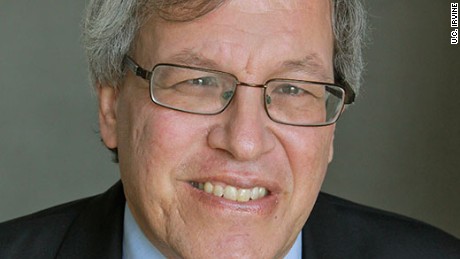Several conservative justices have argued strenuously that the court should not be seen in political terms.
Justice Amy Coney Barrett gave a speech at the McConnell Center at the University of Louisville Law School on September 12 proclaiming that justices are not a “bunch of partisan hacks” and denied that they are following their personal beliefs.
A few days later, on September 16, Justice Clarence Thomas gave a speech at Notre Dame Law School, echoing Barrett’s view that justices do not act on political ideology or their own beliefs when making decisions. “I think the media makes it sounds as though you are just always going right to your personal preference,” Thomas said. “So, if they think you are anti-abortion or something personally, they think that’s the way you always will come out.”
And on Thursday, Justice Samuel Alito, gave a speech, also at Notre Dame, defending the court. He sharply attacked media coverage of it and said the justices are not a “dangerous cabal.”
Justice Stephen Breyer, in promoting his new book, “The Authority of the Court and the Peril of Politics,” gave many interviews, and often said, that the court is not made up of “junior league politicians.” He criticized the media for speaking of justices in terms of the presidents who appointed them and of thinking of justices like politicians.
But on Wednesday, Justice Sonia Sotomayor, in a program for the American Bar Association, conveyed a very different message. “There is going to be a lot of disappointment in the law, a huge amount. Look at me, look at my dissents.”
It is surely not a coincidence that so many justices are speaking publicly about the court, its reputation, and its processes.
Some of it may be a response to its sharp dip in public approval ratings. A September 2021 Gallup poll indicated that approval of the US Supreme Court fell to a new low of 40%. Fifty-three percent said they disapproved of the court.
But I think something more basic — and more troubling — is occurring. The court is about to begin a term where it will decide high profile cases on ideologically divisive issues, such as abortion, gun rights, support for religious schools and perhaps affirmative action. For example, on December 1, the court will hear oral arguments in a case where it is being urged to overrule Roe v. Wade and uphold a Mississippi law that prohibits abortions after the fifteenth week of pregnancy.
With five staunch conservatives, who all at some point have opposed abortion rights, it is hard to imagine that a majority will strike down the Mississippi statute. Likewise, it is probable that these justices will significantly expand gun rights and the requirement of the government providing aid to religious schools.
In their public pronouncements, the conservative justices are trying to send a message that these rulings are not about their personal or political beliefs. But that is nonsense and I doubt anyone who disagrees with the justices will believe it.
The reason Republican senators blocked Merrick Garland’s confirmation and rushed through Amy Coney Barrett’s is because they know, like we all do, that the beliefs and ideologies of the justices matter enormously in determining the outcome of many cases.
President Donald Trump said he would pick justices who would vote to overrule Roe v. Wade and selected for the court three of the most conservative appellate judges in the country in Neil Gorsuch, Brett Kavanaugh and Barrett. No one thinks for an instance that if Hillary Clinton had been elected president and had filled these three seats that there would be any question about the future of Roe v. Wade.
Justice Breyer’s defense of the court is harder to explain, but I think it reflects his deep caring and concern about the court as an institution. He is fearful of the backlash the court will face and wants to shore up public esteem for an institution he loves.
And while I am sure that Sotomayor shares such reverence for the court, her remarks at the ABA event reflect the enormous frustration of what she sees in the year ahead. She knows what her colleagues are likely to do and laments it and what it will mean for people’s lives. She faces the reality of being in dissent on issues about which she cares passionately.
Nothing the justices say off the bench is going to make much difference in how people perceive the court. People praising themselves never carries much credibility. And more important, the American people know that whether Roe is overruled or gun rights are expanded is all about who is on the court and what they believe.






